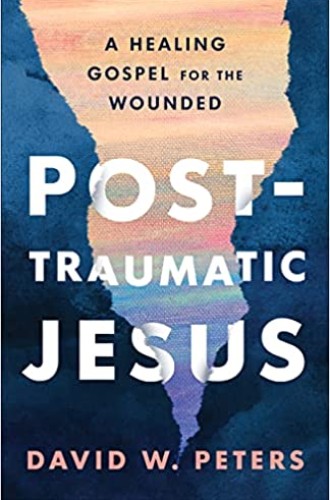Jesus is traumatized
Minister and veteran David Peters invites us to consider our own post-traumatic identities in a new light.
As a therapist specializing in trauma, I am wary of encountering it outside the office. But I was drawn into Post-Traumatic Jesus from the very first sentence, in which the author reveals himself as a missionary for a certain kind of Christ. “The only Jesus Christianity has ever known” is a post-traumatic one, declares David Peters, an Episcopal priest and Iraq War veteran. Not for him is the “gilded and gelded” Jesus who stands so distanced from the trauma of his own story and times that he alienates traumatized readers of the Bible. Instead, Peters depicts a Christ who lived and worked in the trenches of the brutal Roman Empire, intimately acquainted with suffering and never cowed by it. Peters’s Christ is one whom today’s wounded will recognize.
The book’s structure is not overly artful, but it is pragmatic and laser-focused on its thesis. Each succinct chapter presents both a trauma in the life of Jesus and a similar experience of contemporary readers. Peters deals unflinchingly with topics such as God’s silence, trans-generational trauma, abuse, and resurrecting faith after trauma. He delivers his message with piercing and explicit prose that renders some sentiments unforgettable. In a discussion of Mark 9:42, for instance, he writes, “When you’re ranting at the heavens about what [abusers] did to you, the post-traumatic Jesus doesn’t step in and ask you to tone it down a bit. He joins you in your raw anger and grief. He helps you get that giant millstone ready for the toss.” Peters stretches a few of his observations too far, leaving readers unclear about how they map onto his larger thesis, but by and large his insights resound.
Another strength of the book, which sets it apart from most academic texts on this subject, is its emphasis on the personal. Trauma, because it attacks the self, can become over-coupled with identity. (Over-coupled is a clinical term that refers to a post-traumatic somatic error of linking together two feelings, events, or stimuli that should not be so closely associated.) In some cases, trauma might even supplant identity.





